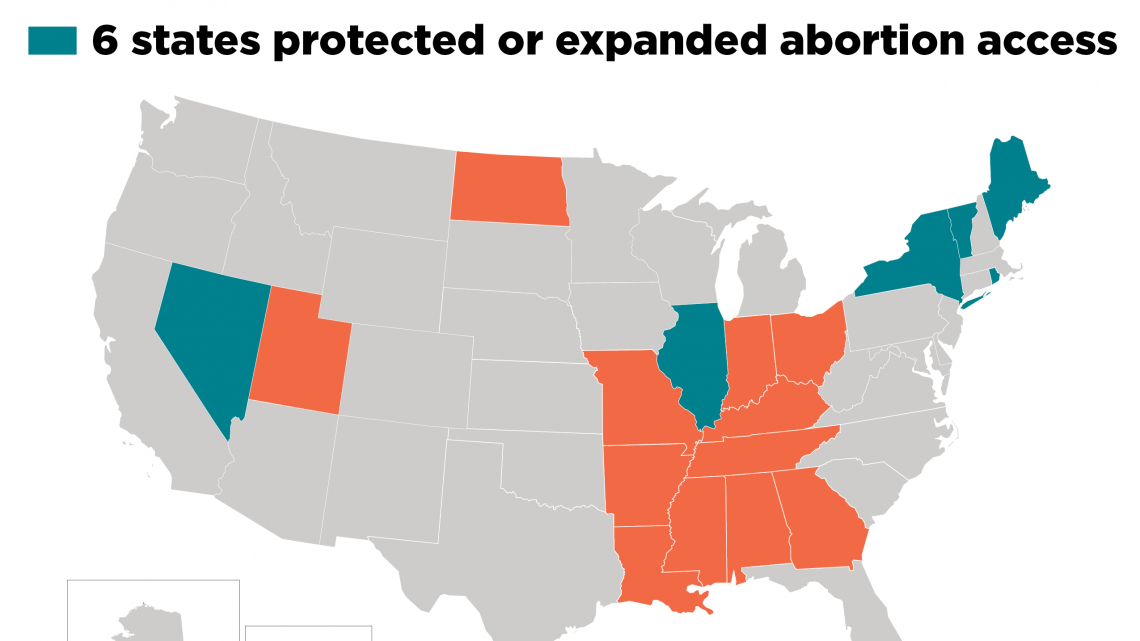
States That Ban Abortion Should Have to Pay People Forced to Give Birth
December 16, 2019Last week, a South Carolina state senator filed an incredible bill that every pro-choice lawmaker in the U.S. should copy. It says that if the state wants to ban abortion, it should have to pay all of the costs of birthing and raising children born as a result. SB 928 says that anyone forced to give birth against their will would be acting as a gestational surrogate for the state—literal labor for which they should be compensated.
The genius legislation is called the Pro Birth Accountability Act—a not-so-subtle reference to the idea that anti-abortion lawmakers who consider themselves to be “pro-life” tend to be conservatives who also typically don’t support programs like Medicaid expansion, food assistance, and paid family leave, which would help people have healthy pregnancies and babies. In short, the bill asserts, they’re not pro-life, they’re pro-birth.
State senator Mia McLeod introduced the bill in response to HB 3020, which would ban abortion at six weeks, before many people know they're pregnant. The six-week ban passed the Senate Medical Affairs Committee in November and could get a vote in the full state senate as soon as January. Governor Henry McMaster said he would sign the bill if it reached his desk.
McLeod's bill notes that a six-week embryo cannot survive outside the womb and banning abortion turns people who otherwise would have terminated pregnancies into gestational surrogates. The bill states that: “just as South Carolina may not constitutionally use a citizen’s rental property without just compensation, it may not constitutionally require a woman to incubate a child without appropriate compensation.”
According to Imani Gandy at Rewire, who first reported on the legislation, SB 928 would require the state to pay for:
- All medical and living expenses during the pregnancy and postpartum period
- Medical costs associated with any disabilities the pregnant person may develop while carrying and delivering the pregnancy
- Medical costs associated with any disability the child is born with, paid for life
- Home visits with a nurse from pregnancy to the child's second birthday
- Public assistance programs including supplemental nutrition assistance (SNAP) during pregnancy and until the child is 18 years old
- Health, dental, and vision insurance until the child turns 18 years old
- A fully funded college savings plan for the child
The Charleston Post and Courier reports the bill would also require the state to pay for funeral expenses if the woman dies during pregnancy or delivery. South Carolina has the 8th highest maternal mortality rate in the country.
In order to get these benefits under the bill, a pregnant person would need to file an affidavit with the Department of Social Services stating that they would have had an abortion if it weren't for the state's ban.
State Representative John McCravy, the lead sponsor of the six-week abortion ban, told the Post and Courier he would not vote for McLeod's bill, saying: “There are many crisis pregnancy centers across our state that already offer help and assistance with pre-natal, adoption and/or child care,” McCravy said. “Not only is material and spiritual help already out there, but I believe most people recognize the infinite blessing of life given by our Creator."
Of course, McLeod's bill doesn’t have a snowball’s chance in hell of passing, but she said state lawmakers should have to consider its provisions before they vote on the six-week ban next year.
“It’s not a tongue-in-cheek kind of bill. It took a lot of thought and a lot of preparation because no other state has introduced anything remotely similar and it certainly warrants a very thoughtful and deliberate discussion and debate, and I hope that we’ll have that," McLeod told the Post and Courier. "Every year, there is some bill that seeks to take from women. This is a way to give them a real chance at life.”
In 2019, state lawmakers passed a wave of six-week bans including in Georgia, Kentucky, Louisiana, Mississippi, Missouri, and Ohio, while Alabama passed a total abortion ban.
Dear pro-choice lawmakers in those states: Call Mia McLeod, she's got your next bill.
Sign up for our newsletter to get the best of VICE delivered to your inbox daily.
Follow Susan Rinkunas on Twitter.


